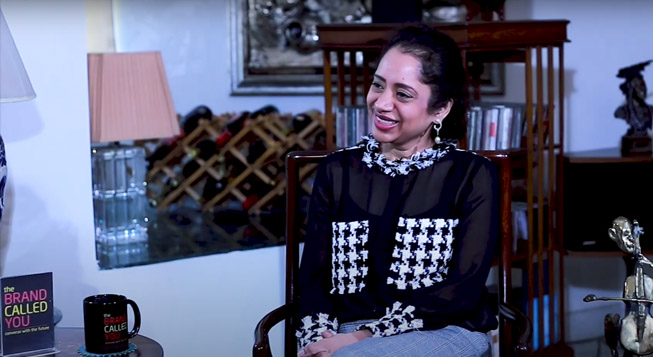Podcast: Play in new window | Download
Follow TBCY RSS
Priyanka Mittal is a full-time Director on the board of KRBL Limited. KRBL is the largest rice exporter and miller in the world. Priyanka is the International Division Head along with handling investor relations, government relations and corporate affairs of KRBL. She is responsible for the brand development of India Gate rice globally.
Priyanka is an alumnus of Harvard Business School’s OPM programme, an undergraduate from University of Southern California and on the Board of the University of Southern California Veterbi School of Engineering.
She has been Special Advisor to the ‘Women in Parliament’ — a European Parliament Initiative and presently is the Chairperson of the Agri Business and Food Processing Committee — PHD Chamber of Commerce and Industry, and has been a member of several associations including YPO (Young Presidents’ Organization), CII (Confederation of Indian Industry), ASSOCHAM (Associated Chambers of Commerce & Industry of India) and FICCI (Federation of Indian Chambers of Commerce & Industry).
Despite possessing such elusive credentials, she notes that she did have to face many internal barriers while running the business by virtue of being a female in a male-centric industry.
“I’m one of the only two women heading a rice business in the world,” she says with a laugh.
On the causes close to her heart
Priyanka joined the KRBL business in 2001 and has since been involved in its various business aspects. However, she feels strongly about macro level social causes and is trying to find ways to do her bit.
Regarding food security and sustainability, she was introduced to those topics very early on as those are the ethos that KRBL runs on. “In the mid-1990s, we presented to Nigeria, its first concept on food security.” KRBL set up a plant in Nigeria to replicate the seed to milling model. It was then that they realized the value a business creates on the entire ecosystem. “Everybody, from the farmer to the consumer gets impacted. Unless there is collaboration, you cannot systematically profit from this business.” Priyanka says that the transaction or commodity model is not sustainable and they understood that very early. They have tried to globally educate people on their model and apply the knowledge in different countries.
One-third of the world’s malnutritioned children reside in India. “The responsibility increases manifold because of that”, she notes. She tried to create something called a hunger bar which was made out of byproducts of rice, called bran. The bar met the needs of a meal of a malnourished child. However, they could not commercialize it. They also have a tie up with the Akshay Patra Foundation and are looking to increase their engagement over the years.
On the state of storage & warehousing
“Between 12-14% of grain is wasted in India due to poor storage.”
Priyanka says that the Government has done a fantastic job of encouraging people to build storage capacity. KRBL itself has almost 6 million sq ft of warehouse space and stores 100% of its produce. The problems of grains with the Food Corporation of India rotting away in the rain have largely been mitigated, but there is still a lot of work to be done. The government is also trying to find channel partners who can do a better job. There is a lot of focus on technology, tracking the movement of stock. FCI has also systemized procurement which has brought in some efficiency.
“Unless there is privatization or a public-private partnership in food procurement, I think achieving 100% efficiency would take much longer.”
Politicization of food
Priyanka vehemently argues that global politicization of food needs to stop.
“Food is a gift of nature and the moment you politicize it, you play with nature. And we’ve all seen the consequences of that.”
In this era of over-information, consumers have access to any information on safety, security or adulteration using various forms of media.
“When food safety is used as a non-tariff barrier or a restrictive access to its markets in the name of protectionism, it’s a dangerous territory we’re heading into.”
As the world population keeps burgeoning and productivity and feeding the population becomes a concern, politicizing food could prove to be very dangerous. In 2010, India faced its first pesticide issue on rice, where the US declared that pesticide-laden Indian Basmati was potentially unsafe. Every year the number of countries imposing these restrictive access to trade keeps increasing with certain pesticides becoming orphaned or Maximum residue levels changing overnight. This is done without much research on safety. This has created a lot of turbulence, especially in the minds of farmers who only want fair compensation for their crop and do not care where it is sold.
“It creates a lot of anxiety and frustration in them. And a lot of segregation. India, with its complexities cannot afford that. We need to systematically work with our major trading nations and find a resolution to this matter. Because today it’s rice, tomorrow it could be any other commodity.”


